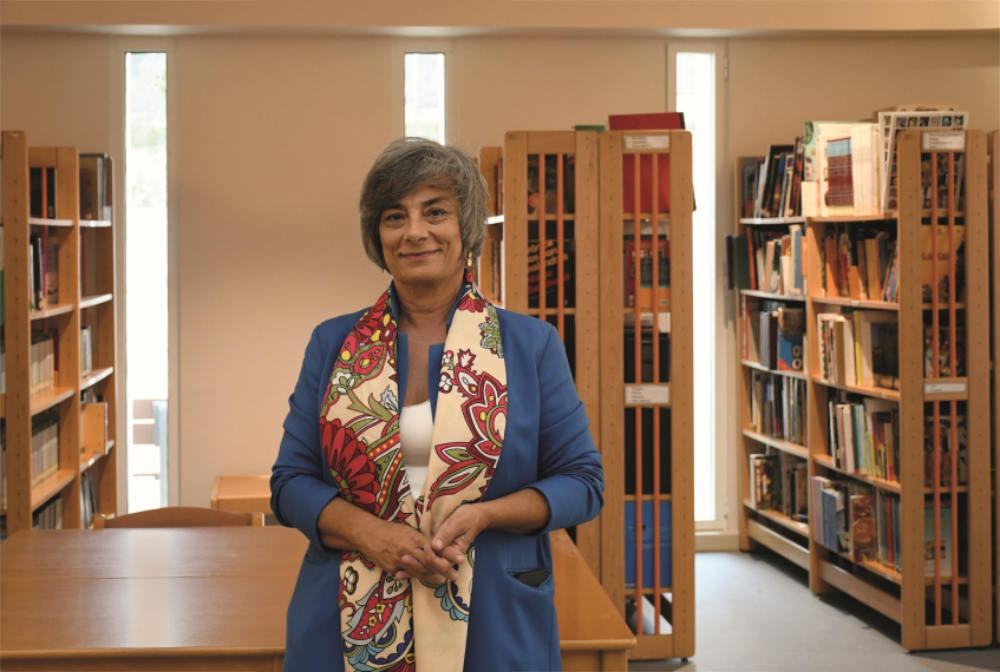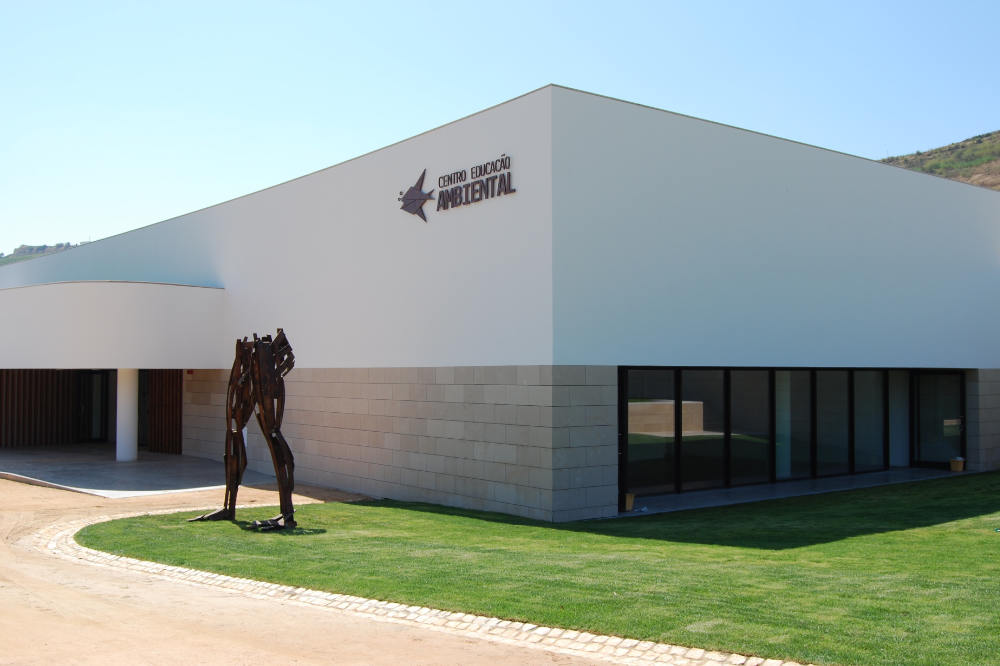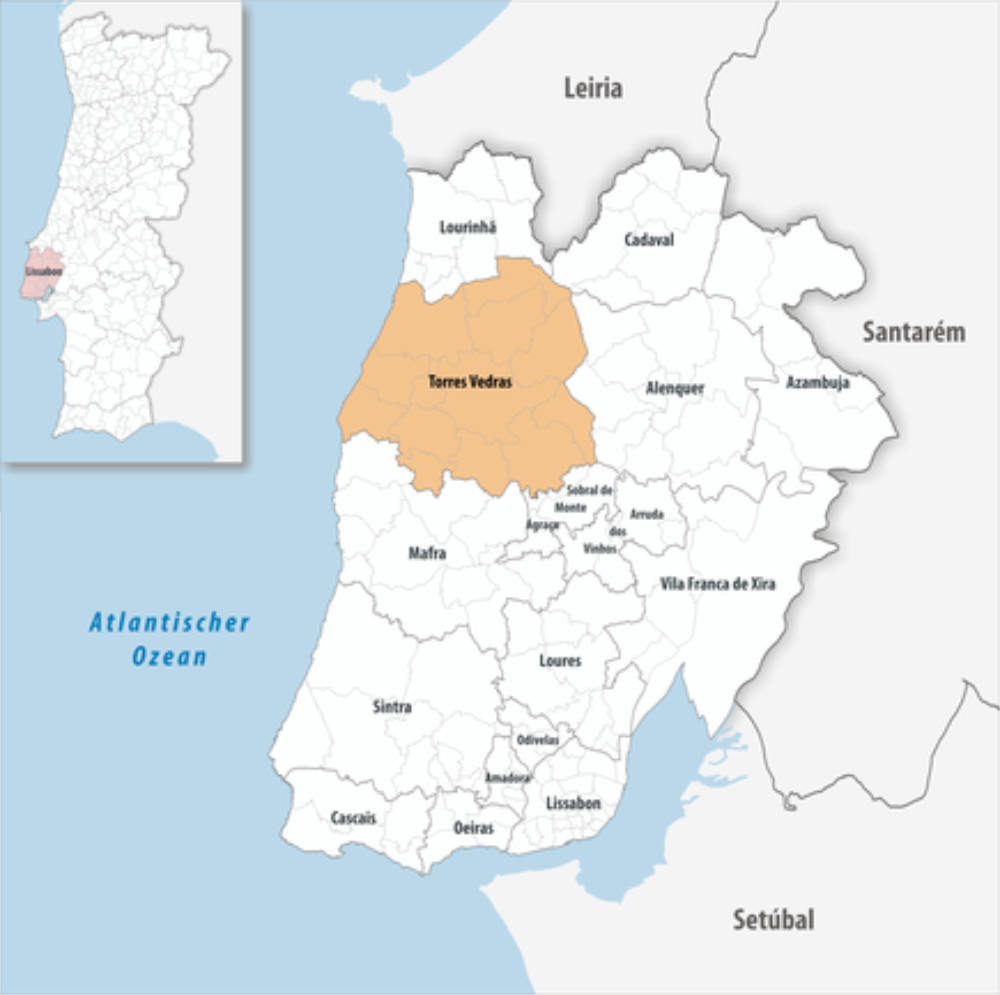Saturday, 15th june 2024.

Portugal has 308 municipalities. One of them is the medium-sized city of Torres Vedras, located 54 kilometres to the north-west of Lisbon and covering an area of 407 km². This inland municipality has 83,072 inhabitants (Census 2021) and spreads over 13 parishes. The municipal council is led by the Socialist Party and its mayor is Laura Maria Jesus Rodrigues (63). At the beginning of the year, the municipality’s Climate Action Plan was presented to the public at a well-attended meeting in the auditorium of the Environmental Education Centre. The local inhabitants were then given the opportunity to comment on it publicly between the dates of 2 and 15 February. ECO123 studied the 428-page plan carefully and then interviewed Laura Rodrigues.
Eco123: What relevance do you see for the Municipal Climate Action Plan (PMACTV) that Torres Vedras has on its agenda?
Laura Rodrigues (LR): This is one of our priority measures. Basically, it consists of everything to do with climate change and the energy transition. In Torres Vedras, everything relating to the environment and its preservation has been a priority for us for many years. And as a municipality we’re known precisely for having this concern. Over the years, we have done a lot of pioneering work and have received awards that have made us famous in this area. In 2010, we joined the Covenant of Mayors. Last Friday, I was in Brussels at the Plenary Meeting of Mayors, accompanied by just over two hundred colleagues from all around Europe, calling for closer links between the European Community, the Council of Europe and the mayors of each country. Because all this work on climate change and the mitigation of climate change can only be done locally. We really want to do this work, and we are doing it. But there has to be an easier way to show municipalities where they can get funds, for example.
Eco123: What strategies do you use to encourage citizens not to reject or boycott the PMACTV measures?
LR: (laughs) We spent a lot of time in Brussels talking about this. And all because we can only do it with everyone’s involvement, because the biggest problems are related to industry and transport.
Eco123: What about agriculture…?
LR: We’ve done the survey. Agriculture is not one of the main problems. We don’t have extensive agriculture like they do in Ukraine, France or Germany, or large-scale animal production. This ends up giving us advantages. But industry in general and transport in particular are the two main areas where very significant changes are needed. They are the two largest consumers of energy, on the one hand, while, on the other hand, they also release carbon dioxide.
For more than 20 years, Torres Vedras has been working on environmental education with young people. But that’s not all. We’ve been working with families too. An Environmental Education Centre has been built, which, theoretically, is net zero (laughs), because it was built at a time when the materials were not yet refined enough to be able to function as net zero ingredients. We ended up being the victims of expectation (laughs).
Eco123: We currently live in a democracy. Fifty years… We can choose and vote for the governments that we want. Imagine that tomorrow, hundreds of motorists turn up at the town hall of which you are mayor and refuse to implement the climate plan. They demonstrate outside your office and simply want to continue driving their fossil-fuelled cars because they can’t afford electric cars and refuse to travel by bus or train. Is this a scenario that you’ve considered? What measures should be implemented?
LR: This scenario could quite easily happen in many European cities, unfortunately. The European Union needs to take a different look at the relationship between the communities and their local authorities in each country, so that each municipality can change the paradigm it has for its city. There are many things that are effectively the same in each country, but we’re all different from one another. There are municipalities that have a much greater need to invest in transport, and to develop a policy of free public transport, with timetables that can serve the local population. And we really want to achieve this in relation to the transport we have in the city – the TUTs – with the development of several new routes. These buses are already free for people aged under 23, and it’s a very significant step we’ve taken. We can always claim this as an achievement.
Eco23: How many bus routes are we talking about? All the routes in the borough?
LR: Four bus routes. There needs to be a national policy to make it easier for people to swap their cars for vehicles that consume other types of energy – electric ones, for example. We set this target a few years ago as a municipality. Apart from our refuse collection vehicles and some lorries, our municipal fleet is composed of electric vehicles. The vehicles in which councillors and most technicians travel around the city are electric. And this costs money.
Eco123: And what about the transformation of the refuse collection vehicles, or the buses…?
LR: It’s not been completed yet.
Eco123: Now, let’s talk about some risks. You got exactly 15,253 votes in the latest local elections (2021). In other words, just under 40 per cent of voters elected you. Let’s assume, for the sake of argument, that you don’t get re-elected in 2025 and Mr Ventura’s neo-fascist party wins the majority in Torres Vedras. I hope not, but… we live in a democracy.
LR: (makes a sound of displeasure, laughs) Let’s hope that doesn’t happen.
Eco123: I’ve been looking at the results of the last elections on 10 March. How do you prepare for the possibility of another party throwing your ambitious climate plan in the bin and not following through with it?
LR: I think it’s almost impossible for a party to discard work that is not part of a municipal plan, but a global one! In reality, there may be a lot of naysayers when it comes to climate and energy issues, but this is really a global issue. The European Union has a very significant influence on the policies and the funding it provides to each country. Climate denial also brings you into conflict with European and national guidelines, which I don’t think can be challenged as much as they sometimes seem to be. I was… a little sad to see that, in the parliamentary elections, Chega got around 20 per cent of the votes in our municipality; it’s even a little above the national average. We realise that this doesn’t have anything to do with our environmental policies, because in general people welcome them. Over the years, we’ve seen that they’re even proud that we’re a municipality that cares. They’ve even been showing they’re on our side. There are things they’d like us to do that we haven’t managed to achieve yet, because they don’t depend on us. Even refuse collection, for example, and cleanliness, which is absolutely essential… Our coastline is… (smiles)… must be… the cleanest in the country. I think I can state that quite safely.
There are a lot of people calling for us to ban the use of pesticides – environmentally aggressive substances – in public spaces, in particular the use of glyphosates. We’ve been trying to move things in this direction, albeit with some limitations.
 Eco123 Revista da Economia e Ecologia
Eco123 Revista da Economia e Ecologia





